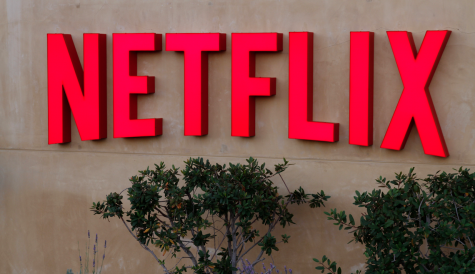
After more than 40 years of operation, DTVE is closing its doors and our website will no longer be updated daily. Thank you for all of your support.
Netflix caps off record year with 200 million subscribers
Netflix has surpassed 200 million subscribers globally for the first time in its history.
The streaming giant capped off 2020 with a total of 203.6 million paying users around the world.
The company surged in the first half of 2020 due to the impact of the Covid-19 pandemic, with its performance peaking in Q1 as it added 15.8 million subscribers. Q3 meanwhile was more muted, with a haul of 2.2 million subs – some 300,000 under the company’s guidance. Netflix however returned to form in the final quarter of the year, adding 8.5 million subscribers.
Overall, the company added 37 million paid memberships in 2020, a record growth of 31% for the streamer. This translated to revenues of more than US$24 billion for the year, up 24% year-over-year. Netflix’s operating profit grew by an even larger margin by 76% to US$4.6 billion.
In its shareholder letter, Netflix described itself as “an increasingly global service” with 83% of its annual additions coming from outside of the US and Canada. EMEA accounted for 41% of Netflix’s full year paid net adds, while APAC added an additional 9.3 million subscribers.
The company however has warned that 2021 will see more modest growth. It has set a target of 6 million subscriber adds in Q1 2021, while CFO Spencer Neumann said that after that “it’s just so difficult [to predict] in this time” and added that the company would not be providing a full year guide. “It’s hard enough to project the next 90 days, let alone the next 12 months,” he said.
The finance boss attributed the pandemic to much of its 2020 growth, and said that for the industry as a whole “it’s accelerated that big shift from linear to streaming entertainment.”
In spite of this uncertainty on subscriber growth, Netflix execs have told shareholders that it is in a healthy financial position, and that the company no longer has a need to raise external funding for its day-to-day operations.
The overall growth in streaming entertainment, Netflix noted in its letter, “has led legacy competitors like Disney, WarnerMedia and Discovery to compete with us in new ways.” The company said that it has been anticipating such a move, and that it has “been moving so quickly to grow and further strengthen” its library of original content.
This is reflected in success for The Crown, which saw its biggest season to date, and the Shonda Rhimes-helmed Bridgerton which debuted on Christmas day. The company also noted that the George Clooney vehicle The Midnight Sky was its largest original film of the quarter, with a projected 72 million member households expected to watch the title in its first four weeks.
Netflix also touted the success of its shows throughout the year including Tiger King and The Queen’s Gambit. The latter became Netflix’s biggest ever limited series with 62 million member households watching it in its first 28 days, and was the source of a revitalisation of chess board sales. Netflix said that its original series accounted for nine out of the 10 most searched shows globally in 2020.
 Looking ahead, Netflix made waves last week when it released its star-studded 2021 film preview video. The preview, which currently has just under 14 million views on YouTube, showcases the array of big-budget films set for release in 2021, with Netflix promising to release at least one new original movie in every week of the year.
Looking ahead, Netflix made waves last week when it released its star-studded 2021 film preview video. The preview, which currently has just under 14 million views on YouTube, showcases the array of big-budget films set for release in 2021, with Netflix promising to release at least one new original movie in every week of the year.
On this marketable slogan, co-CEO Ted Sarandos said that “it’s likely more than 70” films with “plenty of room to grow that.”
Sarandos, who was promoted last year, said that the company is scaling up its productions by “more than double every year… in the scope of the projects, the ambition of the projects and the execution of the projects.”
Netflix will hope that these originals will justify price increases (which BBC News journalist Daniel Stanford pointed out makes it more expensive than a TV licence in the UK), particularly as it loses key titles like Friends and The Office in the US and competitors such as Disney+ ramp up their own originals.
The company however is confident in its method, concluding its investors note: “Our strategy is simple: if we can continue to improve Netflix every day to better delight our members,we can be their first choice for streaming entertainment. This past year is a testament to this approach.”



